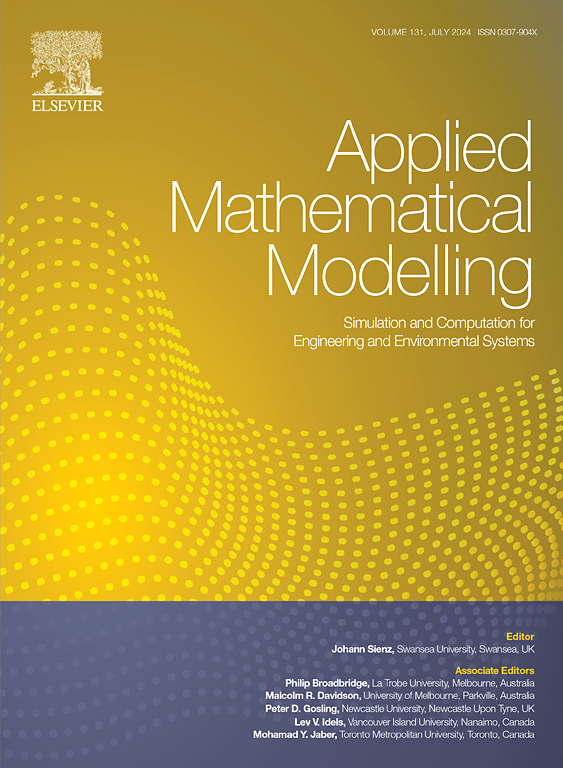Security mechanisms against malicious strategy attacks in the spatial snowdrift game
IF 4.4
2区 工程技术
Q1 ENGINEERING, MULTIDISCIPLINARY
引用次数: 0
Abstract
Malicious attacks are a realistic problem that weakens social cooperation. This study investigates malicious strategy attacks with limited strength within the spatial evolutionary snowdrift game. Attackers randomly target cooperators once the cooperation frequency exceeds a threshold. Simulation results reveal that, under the traditional imitation mechanism, malicious attacks suppress cooperation. To address this issue, a weighted memory mechanism and a dynamic recovery security mechanism are proposed. The weighted memory mechanism prioritizes recent interactions by assigning weights to them, enabling rapid responses to emerging threats, while the dynamic recovery mechanism restores cooperation with a defined probability after detecting abnormal attacks. Monte Carlo simulations demonstrate that this security framework effectively mitigates attack damage and promotes cooperation, particularly under high-intensity attacks.
空间漂移游戏中防范恶意策略攻击的安全机制
恶意攻击是削弱社会合作的现实问题。本文研究了空间演化漂移博弈中有限强度的恶意策略攻击。一旦合作频率超过阈值,攻击者就会随机攻击合作伙伴。仿真结果表明,在传统的模仿机制下,恶意攻击抑制了合作。为了解决这一问题,提出了一种加权记忆机制和动态恢复安全机制。加权记忆机制通过分配权重对最近的交互进行优先级排序,从而快速响应新出现的威胁;动态恢复机制在检测到异常攻击后,以定义的概率恢复合作。蒙特卡洛仿真表明,该安全框架有效地减轻了攻击损害,促进了合作,特别是在高强度攻击下。
本文章由计算机程序翻译,如有差异,请以英文原文为准。
求助全文
约1分钟内获得全文
求助全文
来源期刊

Applied Mathematical Modelling
数学-工程:综合
CiteScore
9.80
自引率
8.00%
发文量
508
审稿时长
43 days
期刊介绍:
Applied Mathematical Modelling focuses on research related to the mathematical modelling of engineering and environmental processes, manufacturing, and industrial systems. A significant emerging area of research activity involves multiphysics processes, and contributions in this area are particularly encouraged.
This influential publication covers a wide spectrum of subjects including heat transfer, fluid mechanics, CFD, and transport phenomena; solid mechanics and mechanics of metals; electromagnets and MHD; reliability modelling and system optimization; finite volume, finite element, and boundary element procedures; modelling of inventory, industrial, manufacturing and logistics systems for viable decision making; civil engineering systems and structures; mineral and energy resources; relevant software engineering issues associated with CAD and CAE; and materials and metallurgical engineering.
Applied Mathematical Modelling is primarily interested in papers developing increased insights into real-world problems through novel mathematical modelling, novel applications or a combination of these. Papers employing existing numerical techniques must demonstrate sufficient novelty in the solution of practical problems. Papers on fuzzy logic in decision-making or purely financial mathematics are normally not considered. Research on fractional differential equations, bifurcation, and numerical methods needs to include practical examples. Population dynamics must solve realistic scenarios. Papers in the area of logistics and business modelling should demonstrate meaningful managerial insight. Submissions with no real-world application will not be considered.
 求助内容:
求助内容: 应助结果提醒方式:
应助结果提醒方式:


